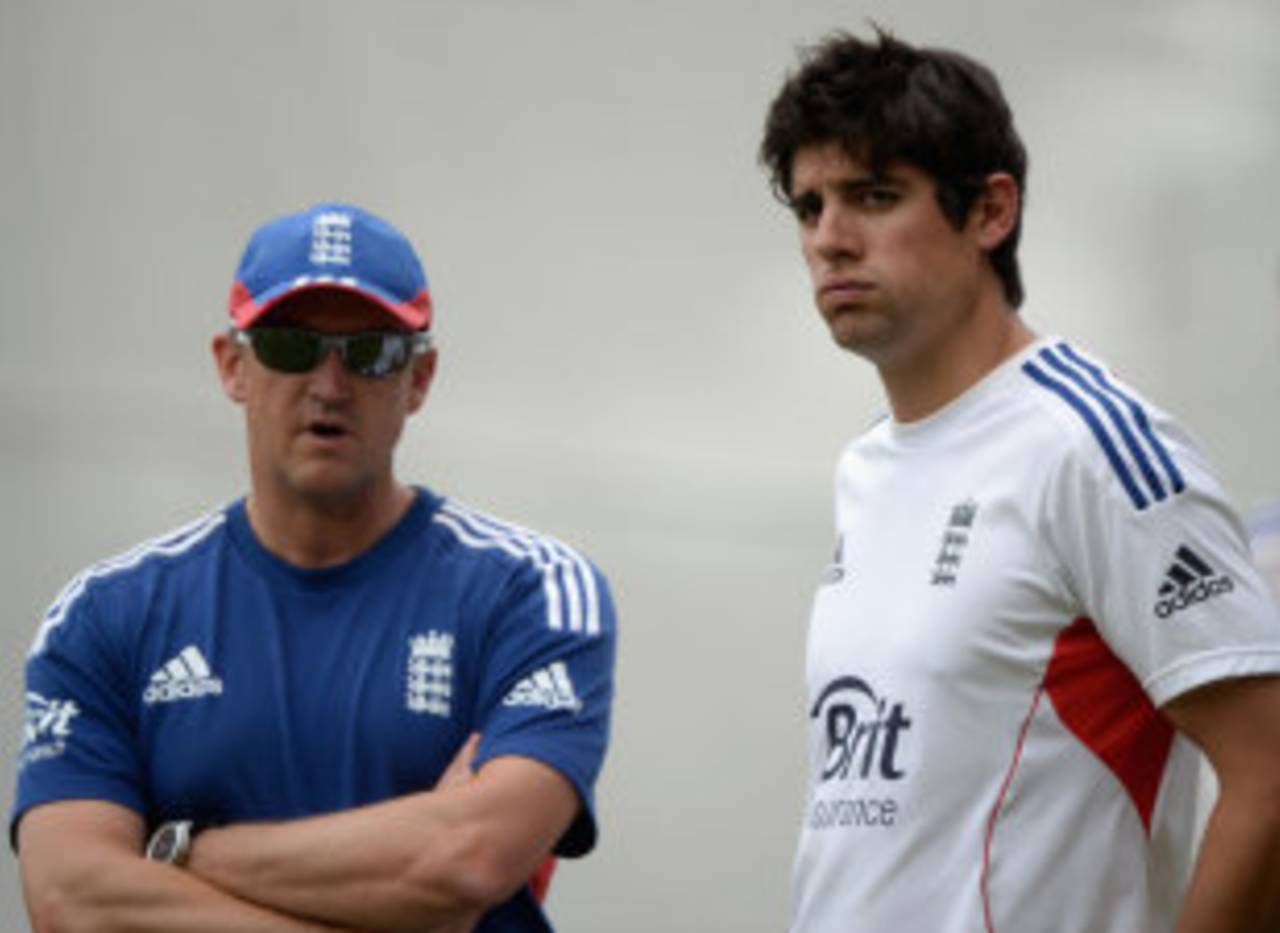Schedule weighs heavy on England
The issue of player burnout may be among the most pressing matters confronting Paul Downton when he replaces Hugh Morris as the managing director of England cricket in the new year
George Dobell in Adelaide
Dec 4, 2013, 10:02 PM

The ECB has attempted to help balance the workload for England's players and coaches • Getty Images
The issue of player burnout may be among the most pressing matters confronting Paul Downton when he replaces Hugh Morris as the managing director of England cricket in the new year.
The departure of Jonathan Trott from England's tour of Australia is the latest piece of evidence to suggest that England's schedule may be unsustainable for some players, coaches and support staff on a personal level. The somewhat intense atmosphere within the England camp, caused as much by media demands and public scrutiny as the demanding set-up, might also be a contributory factor.
While Morris, talking to the media for the last time in a scheduled press conference before departing for a new job with Glamorgan, was at pains to underline the measures the ECB takes to protect its players and key coaching staff, he did admit that England's schedule presented a significant challenge.
"There's no getting away from the fact that the international programme is incredibly busy," Morris said. "We know people spend a long time away from home.
"We try to manage that as well as we possibly can. In recent times we've rested players from certain series. We want to make sure that our best players are fit and strong and ready to play in the best competitions, so we've rotated them around."
Perhaps the key figure in England's relative success in recent years has been the coach, Andy Flower. In an attempt to retain his services, the ECB has already reduced his workload significantly by offloading the day-to-day management of the limited-overs squads to Ashley Giles. But Morris admitted there was no long-term guarantee that Flower would continue in the role of team director.
"Andy Flower's job has changed as well," Morris said. "We look to rest key players and we've restructured Andy's role, which is a reflection of the fact that we play a hell of a lot of international cricket.
"He has relentless pressure on him. It was important for Andy's role to change. We try and manage that as best we can. And obviously there is a support network in place for all our players - whether they have physical ailments or mental ailments. We try and support them as well as we possibly can.
"Andy never looks too far ahead and he never has done, but he is incredibly committed. He enjoys what he does, he has been hugely successful at what he does and I would see him being around for some period of time yet"England managing director Hugh Morris
"Andy never looks too far ahead and he never has done, but he is incredibly committed. I know he enjoys what he does, he has been hugely successful at what he does and I would see him being around for some period of time yet. The way we've restructured his role means he has a better work-life balance now.
"I would certainly hope he will continue. He's got an incredible amount still to offer cricket in England and Wales. It would be folly for us to lose that level of skill, experience and knowledge. I would certainly hope that he would go on for a period of time yet."
There is little prospect of England's schedule being reduced in the long-term. The finances at every level of the game in England and Wales depend to a large extent on the value of the broadcasting deals for the international teams. To play less often may well result in cuts to all areas: the international sides, the domestic game, the grass-roots game, women's cricket and disability cricket. None of that is appealing.
Instead England hope that, by rotation and succession planning, they can deliver consistent success while ensuring key individuals gain the requisite rest periods. And, as far as Flower's position is concerned, they feel they have an ideal successor in place.
"Succession planning is always important," Morris said. "We did that with the captains and we've done it with some of the science and medicine staff. Clearly Ashley Giles is getting some really valuable experience down the line.
"Ashley did a great job as director of cricket at Warwickshire and has a terrific track record as a player and coach. He's started off really well in the shorter formats of the game.
"We are judged on performances in the senior team, but a lot of the work behind the scenes is making sure we try and sustain success over a long period of time. Getting the National Performance Centre on track in Loughborough 10 years ago was really important. That's the headquarters of England cricket now and is the place where all our best players go from the age of 16 upwards.
"We have our science and medicine programmes there, we have our coaching programmes based out of there and the crucial part of this job is trying to put the right systems of place to make sure we have a conveyer belt of talent all the way through."
The evidence of recent debutants - the likes of Simon Kerrigan and Chris Woakes - suggests the supply chain is not quite as reliable as Morris might like but, with the schedule forcing England to rest and rotate more than ever, it appears the ECB is about to find out how effective its "conveyer belt" really is.
George Dobell is a senior correspondent at ESPNcricinfo